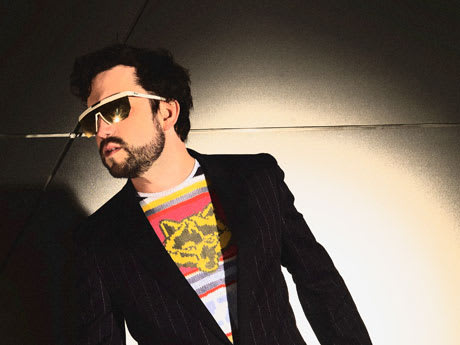Looking back to 1999, Zombie Nation's single, "Kernkraft 400," set the standard as one of the most innovative dance songs to date, maybe of all time. Luckily for us, Munich-based DJ Florian Senfter (aka John Starlight) has done it again. The highly anticipated fourth album, Zombielicious, is an intoxicating adventure through bass thumping, heart pounding, surreal electronic dance soundscapes. If you merged the quirky weirdness of early Chemical Brothers, the rhythmic complexity of Justice and peppered in sounds from the '70s, this is what you would get. The album kicks off with "Mad De Todo," a highly energetic and almost cerebral voyage through trance-like passages that draw out the most visceral and fierce kind of dancing. "Get It" uses a spiky, double-amped bass drum that brings to mind the cocky strut of an oversexed urban kid who "wants it/and gets it all the time." The album even takes a detour into a '70s horror-style genre with "Supercake 53," complete with computerized tambourines and razor-sharp synthesizers. Although Senfter samples from numerous sounds and styles, such as the funk-tech vibes of "Worth It," both parts, the overall sound is still strikingly organic and natural.
You release your music on CD and vinyl. Do you prefer the razor sharpness of digital music or the warm, clubby feel of analogue sound?
There can be only one answer: vinyl! My production is based on analogue hardware instruments because I want to create a warm atmosphere. I feel that this is the most pleasant sound to the human ear. Most people now enjoy music as MP3s on laptop speakers. That is the real tragedy because producers now make music that sounds good on laptop speakers. So you get squeaky, distorted melodies instead of dynamics and bass.
On the new album, you have a song with My Robot Friend, one of the hottest electronica acts out of NYC. What was it like working with Howard Robot?
We've been good friends for years now. The last time I played in NYC, he joined me spontaneously to perform "The Cut," which we collaborated on for my last album, Black Toys. People went crazy when he came out in his costume, which was made of hundreds of LEDs and lights. He worked so hard on that costume.
Is there a difference between electronic dance music in Europe compared to the United States, or anywhere else in the world you've been to?
I think the main difference between Europe and the U.S. is that in Europe there is more of a scene of regular electronic clubs and parties, while in the U.S. the shows have more of a one-off concert character. Let's say half of the audience comes to see the specific artist and the other half is there because they know the party is always good.
(UKW)You release your music on CD and vinyl. Do you prefer the razor sharpness of digital music or the warm, clubby feel of analogue sound?
There can be only one answer: vinyl! My production is based on analogue hardware instruments because I want to create a warm atmosphere. I feel that this is the most pleasant sound to the human ear. Most people now enjoy music as MP3s on laptop speakers. That is the real tragedy because producers now make music that sounds good on laptop speakers. So you get squeaky, distorted melodies instead of dynamics and bass.
On the new album, you have a song with My Robot Friend, one of the hottest electronica acts out of NYC. What was it like working with Howard Robot?
We've been good friends for years now. The last time I played in NYC, he joined me spontaneously to perform "The Cut," which we collaborated on for my last album, Black Toys. People went crazy when he came out in his costume, which was made of hundreds of LEDs and lights. He worked so hard on that costume.
Is there a difference between electronic dance music in Europe compared to the United States, or anywhere else in the world you've been to?
I think the main difference between Europe and the U.S. is that in Europe there is more of a scene of regular electronic clubs and parties, while in the U.S. the shows have more of a one-off concert character. Let's say half of the audience comes to see the specific artist and the other half is there because they know the party is always good.
